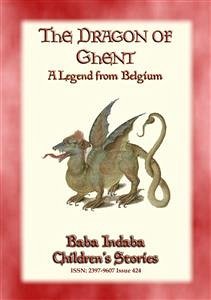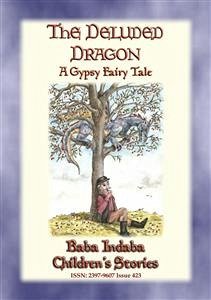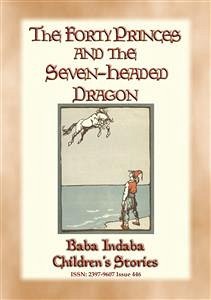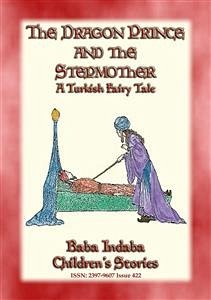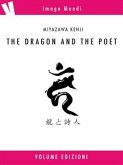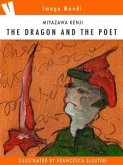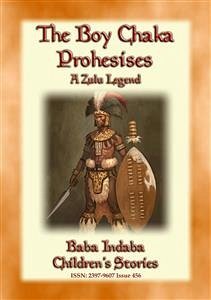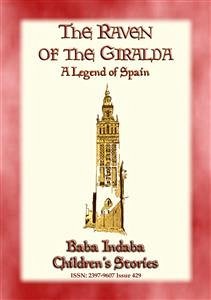ISSN: 2397-9607 Issue 424 In this 424th issue of the Baba Indaba’s Children's Stories series, Baba Indaba narrates the Japanese Legend, "THE DRAGON of GHENT”. AT ONE side of the Place Saint Bavon in the centre of Ghent, Belgium, rises the impressive carillon tower with its fifty-two singing bells. A long, long, time ago, a dragon began living on the top of the tower. Before then the dragon lived near Aleppo, one of the chief cities of the Saracens in northern Syria. He was such a tender-hearted old dragon that he was called The Weeping Dragon, because he wept large bucketfuls of tears whenever the Belgian crusaders and the Saracens fell to fighting as they were wont to do in the 7th and 8th Centuries. Where his tears fell the soil became unusually fertile, and there soon grew up, from this rich soil, a rare flower – the tulip. A soothsayer, of ages past, had predicted that, if the Saracens and Belgians should ever stop fighting, the tears of The Weeping Dragon, whose name was Buccoleon, would dry up and his brown scales would turn to scales of pure gold. So it proved. For, when all the wars had come to an end, the dragon no longer felt like weeping, and his sombre, brown scales were gradually replaced by gleaming scales of gold. Now, one afternoon, as Buccoleon lay in the sun with his glittering scales, he decided it was time to return home. What happened next you ask…? Well, as you would expect in these circumstances, many things happened. To find the answers to this question, and any others you may have, you will have to download and read this story to find out! ------- Baba Indaba is an old Zulu storyteller who narrates children's stories from around the world. Baba Indaba translates as "Father of Stories". Each issue also has a "WHERE IN THE WORLD - LOOK IT UP" section, where young readers are challenged to look up a place on a map somewhere in the world. The place, town or city is relevant to the story. HINT - use Google maps. It is our hope that in looking up these place names, using Google Maps, that young people will be able to see images and read about other peoples and cultures from around the world. Through this activity, it is our hope that young people will not only increase their world geography but also increase their understanding and tolerance of other people and cultures. INCLUDES LINKS TO DOWNLOAD 8 FREE STORIES BUY ANY of the BABA INDABA CHILDREN’S STORIES at https://goo.gl/65LXNM 10% of the profit from the sale of this book will be donated to charities. ================== KEYWORDS/TAGS: Baba Indaba, Children’s stories, Childrens, Folklore, Fairy, Folk, Tales, bedtime story, legends, storyteller, fables, moral tales, dragon of ghent, Buccoleon, Belgium, Flanders, low lands, low country, Taff, Aleppo, tulips, tower, Carillion, garden, scales, bell, Saracens, Muslim, moslem, Weep, tears, Danube, Flew, crusaders, victory, gold, Nyken, fly, flew, Constantinople, Nuremburg, fighting, Archers, flowers, potter, Turban, castle, turk, belfry, leader, Vienna, marsh, weather, vane, Charlemagne, tender-hearted, watchtowers, goldsmith, soothsayer, fortune teller, moonlight, fifty-two, 52, ISTANBUL, champion, knightly, Bosporus, Mynheer, mister, sir, Marmora, Clouds, babies, Syria, Assyria, Bugle, Horn
Bitte wählen Sie Ihr Anliegen aus.
Rechnungen
Retourenschein anfordern
Bestellstatus
Storno

